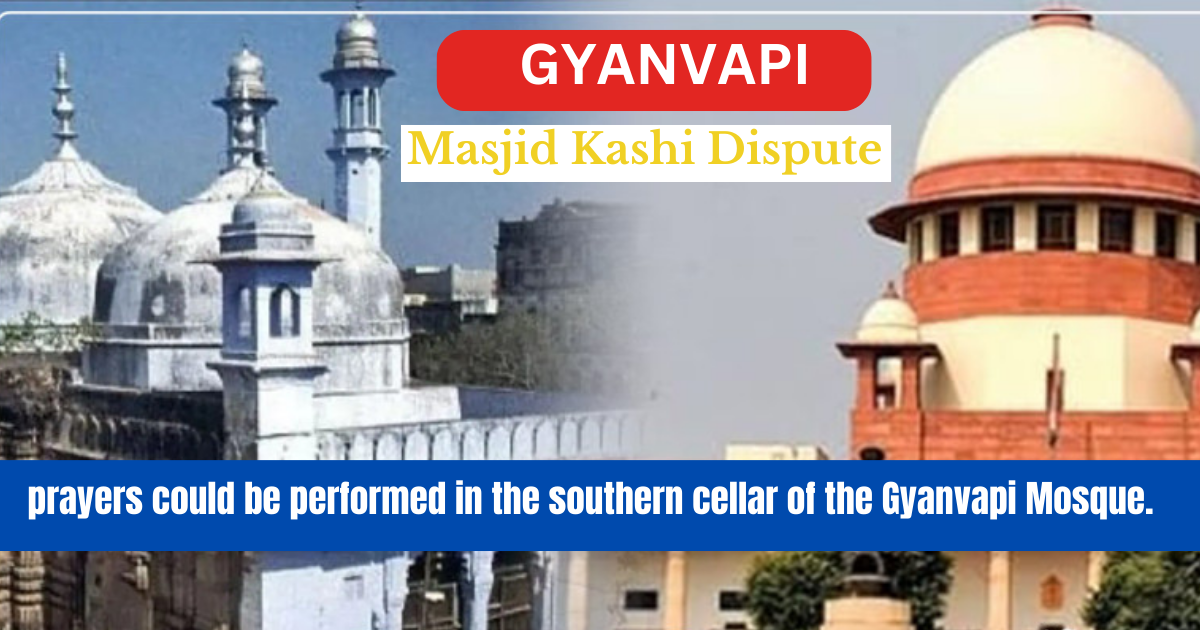Gyanvapi Mosque : “Tensions Flare in Varanasi Over Gyanvapi Mosque Prayer Dispute”

Introduction:
Varanasi, one of the oldest and holiest cities in India, has recently become the epicenter of a heated dispute surrounding the Gyanvapi Mosque complex. The controversy erupted after a district court ruling allowed prayers to be conducted in the southern cellar of the mosque, which triggering protests and appeals from the Muslim community. The situation has escalated, the need to heighten the security measures and legal battles between religious groups. This blog delves into the unfolding events and the underlying tensions surrounding the Gyanvapi Mosque prayer dispute.
Background of the Dispute:
The Gyanvapi Mosque, located adjacent to the revered Kashi Vishwanath temple, has been at the center of a long-standing dispute between Hindu and Muslim communities. Hindu litigants claim that the mosque was built on the site of an ancient temple destroyed during the reign of Mughal emperor Aurangzeb. This claim is supported by a survey conducted by the Archaeological Survey of India.
Recent Developments:
The controversy re- began when a district court ruled that prayers could be performed in the southern cellar of the Gyanvapi Mosque. This decision sparked outrage among Muslim groups, leading to appeals and legal challenges by the mosque management committee. The situation further intensified when prayers were conducted in the cellar on Wednesday night, shortly before the committee approached the Supreme Court and the Allahabad High Court seeking a stay on the order.
Response from the Muslim Community:
In response to the court ruling and the subsequent prayers, the Anjuman Intezamia Masajid Committee, which manages the Gyanvapi Mosque complex, appealed to the Muslim community to keep their shops closed on Friday in protest. This call for protest underscores the deep-seated sentiments and concerns among Muslims regarding the sanctity of the mosque premises and the preservation of their religious rights.
Security Measures and Precautions:
Given the sensitive nature of the dispute and the potential for unrest, the local authorities have beefed up security in Varanasi. Police forces have conducted flag marches in sensitive areas, and precautionary measures have been implemented to maintain peace and order during Friday prayers at the Gyanvapi Mosque complex.
Conclusion: The Gyanvapi Mosque prayer dispute in Varanasi reflects the complexity of historical, religious, and legal factors that continue to shape communal relations in India. As the legal battle unfolds and tensions increases, it is important for all stakeholders to engage in dialogue, respect the rule of law, and uphold the principles of religious harmony and coexistence. Ultimately, a peaceful resolution to the dispute is essential for fostering unity and preserving the cultural heritage of Varanasi, a city revered by millions around the world.